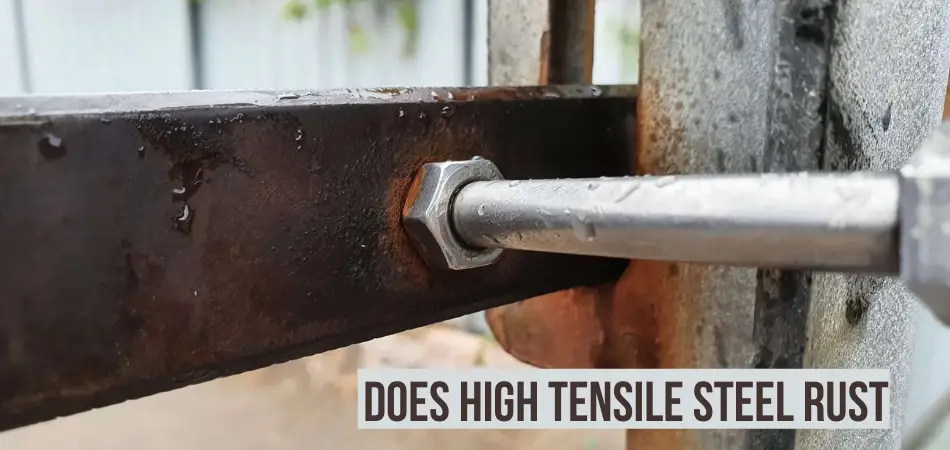High tensile steel is used to manufacture farm tools, construction equipment, and automotive parts. It is much more likely to be exposed to a corrosive environment than the decorative metalwork around your home. But of the truth, does high tensile steel rust when exposed to a corrosive environment?
Yes, high tensile steel will rust, but it will slowly rust. The steel contains certain other elements, including carbon, which can combine with the oxygen in the air and form rust.
Also, high tensile steel is known as the strongest grade of steel that you can get in the market. There are many mistakes one can make when working with it and some misunderstandings about how strong this particular alloy is.
However, to maintain its integrity, you need to ensure high tensile steel does not rust by regular maintenance coatings to enhance its lifespan.
Contents
What Is High Tensile Steel?
High tensile steel is a form of carbon steel that possesses tensile strength and high yield strength. It comprises distinctive alloying components to build the tensile strength of the steel. These components include vanadium, manganese, chromium, nickel, silicon, and molybdenum and are used for unique purposes such as crane ropes and the production of automobile parts.
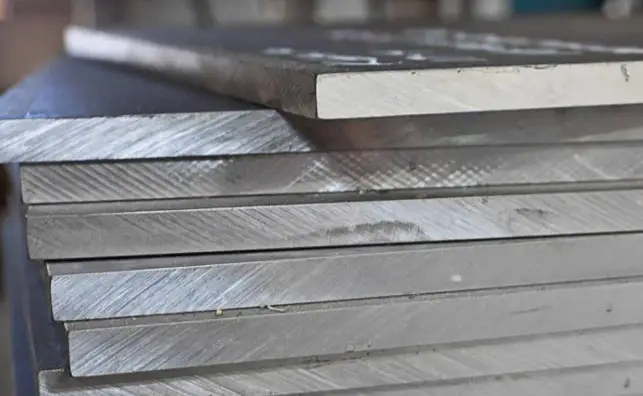
High tensile steel can also be described as low alloy steel that can withstand great strain without becoming deformed, or breaking, possessing a yield strength range of 50,000 to 100,000 pounds per square inch.
Furthermore, it has extensively high toughness and fatigue strength as well. However, it shows a lessened plastic ductility and brittle fracture when compared to other forms of steel.
What Is The Difference Between Mild Steel And High Tensile Steel?
Mild steel is a very popular type of carbon steel, which contains a low amount of carbon by weight. High tensile steel is a type of mild carbon steel that has a high yield strength coupled with high tensile strength.
The major difference between mild steel and high tensile steel is that high tensile steel is much stronger than mild steel. High tensile steel also shows a reduction in brittle fracture and plastic ductility when compared to other forms of steel. Furthermore, the carbon content of high tensile steel is higher than mild steel.
Is High Tensile Steel Stronger Than Stainless Steel?
The strength of any stainless steel depends on its components. Not all stainless steel is produced equally and unfortunately, the most popular types of stainless steel such as the 316 and 304 (A2) are normally very weak when it comes to tensile strength.
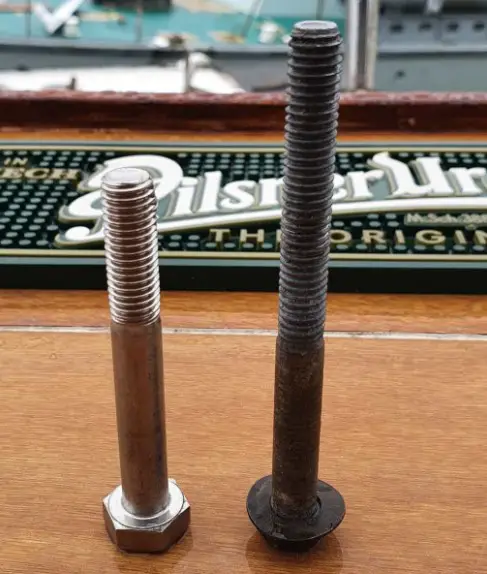
Steel can be referred to as high tensile when it has additional alloying ingredients that help improve its tensile strength. Some of these alloying materials include chromium, vanadium, nickel, and molybdenum. High tensile steel can withstand high tensile forces better when compared with some types of stainless steel.
However, stainless steel with very high tensile strength is also considered stronger than other high tensile steel. For example, the duplex stainless steels have higher tensile strength when compared to austenitic steel. The highest tensile strengths are observed in the precipitation hardening (17-4PH) and martensitic grades (431).
Is Aluminum High Tensile Steel?
No. Aluminum is not high tensile. Aluminum has a tensile strength of 276MPa and a density of 2.81 gcm-3. Aluminum is, therefore, lighter than steel because steel has a tensile strength of 8 g cm-3.
Although the process of manufacturing aluminized steel (which is steel that has been hot-dip coated on both sides with an aluminum-silicon alloy) assures a tight metallurgical bond between the steel sheet and its aluminum coating, the result is that there becomes a unique combination of properties which neither aluminum nor steel possesses alone.
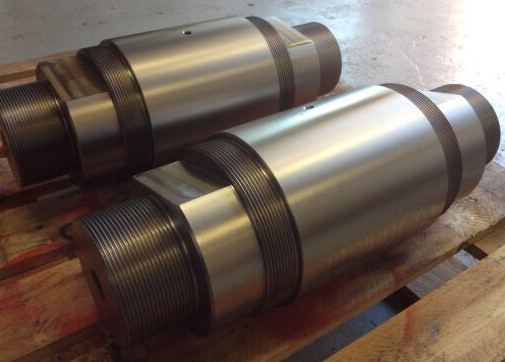
Pure aluminum lacks a very high yield strength or tensile strength. However, adding alloys to aluminum ( such as manganese, magnesium, silicon, and copper) can increase the strength properties of aluminum and produce an alloy with properties that can be tailored to specific applications.
Aluminum, in particular, is, however, very much lighter when the weight to strength ratio is taken into consideration.
Chromoly Or High Tensile Steel: Which Is Stronger?
Chromoly is stronger than high tensile steel. Both Chromoly and high tensile are alloys of steel. High tensile steel is an alloy made with carbon, this increases its resistance to being pulled apart, bending, or breaking. It is very durable and tough, hence suitable for day-to-day use.
Chromoly is more advanced than high tensile steel. Although Chromoly is stronger, it is more flexible and maintains its form. Chromoly is an alloy of steel made with molybdenum and chromium which makes it more durable and stronger than high tensile steel. Materials made from Chromoly are extremely durable and last longer.
How To Prevent High Tensile Steel From Rusting?
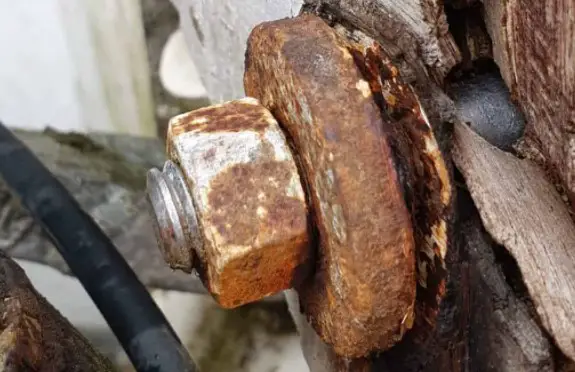
1. Apply Oil
Oil is not only good for the lubrication of metal parts, but it also prevents rust by forming a protective barrier against rust. The principle here is understandable; when steel is coated with oil, moisture is unable to react with the iron in the metal and cause rust.
Oiling must however be done repeatedly from time to time.
2. Apply Paint
Paints do more than beautify, they also create a protective layer over metal objects and prevent moisture from reaching the metal. Although this won’t completely stop moisture from getting through, it is a very simple way to slow down rust.
Using the right paint is very important to prevent rust. The paint must be able to stick to the metal, so ensure you choose the right paint and eight finishing. Also, ensure you use oil-based paint instead of water-soluble paint.
Also be careful when painting, avoid any form of moisture or contaminants from getting onto the surface of the steel before painting.
In Essence
High tensile steel does rust. This occurs as a result of moisture present which reacts with the oxygen present in the air. To prevent high tensile steel from rusting, apply oil or paint to the surface. Although this does not guarantee total coverage or prevention, it will slow down the rusting process.
High tensile steel is one of the strongest and most durable forms of steel available.

